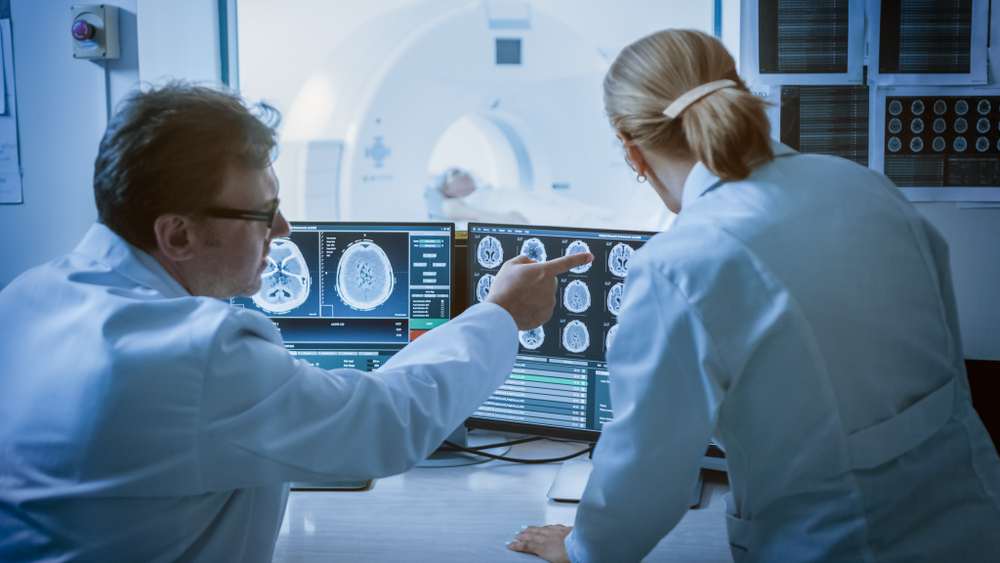 If you’ve been injured in a car accident, had a hard slip-and-fall, or are even worried about a degenerative illness, your doctor may want to utilize state-of-the-art imaging technology to help support their diagnosis. An MRI Scan is one type of diagnostic imaging technology that is commonly used among doctors because it creates highly detailed images of bones, joints, organs, and tissues in your body. Internal injuries can be complex and what may seem like ‘just a broken bone’ may actually involve damage to nearby muscles, tendons, nerves, and organs. Your doctor may recommend an MRI scan to get a more detailed look at how an injury or illness has impacted you.
If you’ve been injured in a car accident, had a hard slip-and-fall, or are even worried about a degenerative illness, your doctor may want to utilize state-of-the-art imaging technology to help support their diagnosis. An MRI Scan is one type of diagnostic imaging technology that is commonly used among doctors because it creates highly detailed images of bones, joints, organs, and tissues in your body. Internal injuries can be complex and what may seem like ‘just a broken bone’ may actually involve damage to nearby muscles, tendons, nerves, and organs. Your doctor may recommend an MRI scan to get a more detailed look at how an injury or illness has impacted you.
How Does an MRI Scan Work?
An MRI scan involves a large magnet, radio waves, and advanced computer technologies to take a 3D look at your internal structures. This type of diagnostic imaging tool is non-invasive and does not expose you to any radiation. The MRI machine is like a large, donut-like tube structure. You will lie on a table that will slide into the MRI machine where the images are taken. MRI scans are unique because they require you to stay absolutely still, or else a small movement can blur and distort the images. The magnetic and radio waves take cross-sectional images of your internal structures, which allows your doctor to get a better look at the affected area from all angles.
What Does an MRI Scan Look For?
MRI scans are commonly used in a wide range of orthopedic cases, from spine problems to cartilage damage to torn ligaments or tendons. MRI scans can also be used to detect abnormal growths like cysts or tumors inside your body. MRI scans are typically done on a specific area of the body where the injury or illness has affected you. Because of the highly detailed nature of these scans, an MRI scan can take up to an hour to complete. MRIs can also be useful for tracking treatment progress or measuring the growth of an abnormal cyst or tumor over a period of time. Your doctor may also want to use an MRI scan to look more closely at an area that had previously been scanned using a two-dimensional diagnostic imaging tool.
Why Choose an MRI Instead of Other Diagnostic Tools?
The MRI scan is arguably the most accurate and detailed in capturing images of how the body has been affected by illness or injury. Whether you are struggling with a degenerative disease like rheumatoid arthritis or suffered an acute spinal injury, your doctor may select an MRI scan over other diagnostic imaging tools for a number of reasons.
MRI or X-Ray?
X-rays are two-dimensional diagnostic imaging tools that are most beneficial for injuries that directly affect bones and joints. This type of imaging technology is often more accessible and produces the fastest results. X-rays take a few minutes to complete, as opposed to an MRI scan which can take up to an hour. However, X-rays can only detect areas with high levels of calcium in the body, which means your bones and teeth X-rays can help your doctor detect fractures, dislocations, misalignments, and joint issues. X-rays also utilize radiation, which is not harmful in small doses but should still be monitored. An MRI scan may be called for if an X-ray doesn’t provide a clear enough image of the affected area, or to detect more detailed damage that an X-ray can’t pick up, like a hairline fracture.
MRI or CT Scan?
CT scans also use radiation and are similar to an X-ray, though CT scans produce images in greater detail. CT scans are also fast like X-rays, and unlike X-rays, they can also show soft tissues like muscles, tendons, ligaments, and cartilage. A CT scan is typically more common in an emergency situation when greater detailed images are needed in a shorter amount of time. However, an MRI scan can provide more subtle, minute details of different types of tissues that a CT scan may not always show.
How Do I Prepare for an MRI Scan?
If your doctor recommends an MRI scan, there are a few things you should know in order to prepare yourself. While you likely won’t need to worry about restricted eating or drinking before the exam, you may want to mentally prepare yourself for the experience. MRI scans are typically loud and can make banging sounds as the magnet moves around inside the machine. You also cannot wear any metal or jewelry because of the use of high-powered magnets in the machine.
At AICA Orthopedics in Jonesboro, our doctors have access to MRI machines and other state-of-the-art diagnostic imaging tools in-house, so you can meet with your doctor and schedule your MRI scan all in one convenient location!
